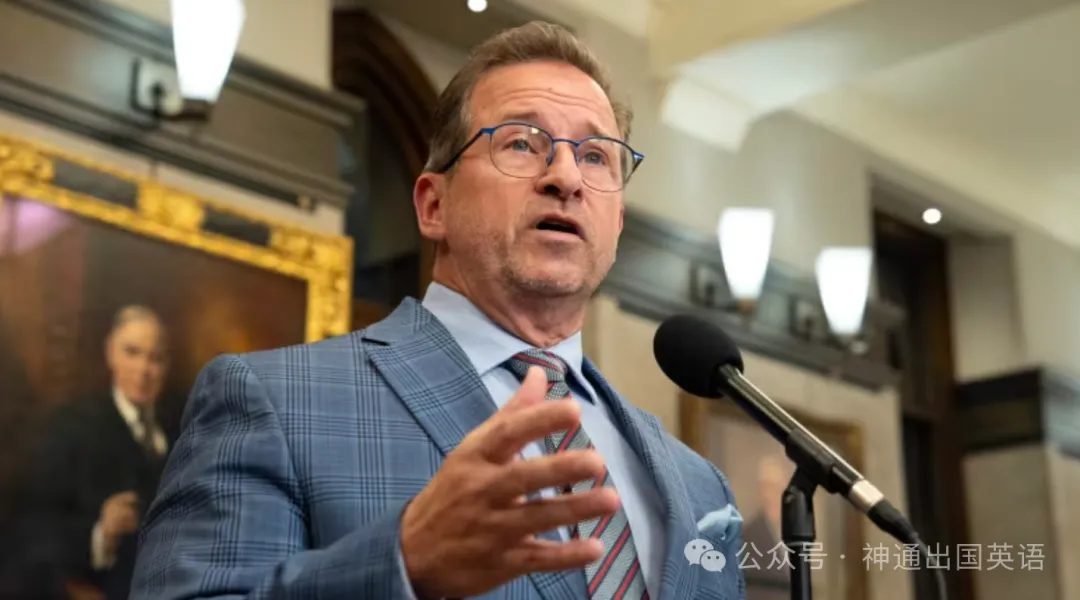提前大选真的会发生吗?随着最后期限的到来,自由党“面临严重倒台的风险”,魁人党领袖布朗谢强烈表态,如果政府未能通过他提出的关键法案,将联合其他反对党推翻自由党政府。
Will an early election really happen? As the deadline approaches, the Liberal Party "faces a serious risk of collapse," as Bloc Québécois leader Yves-François Blanchet strongly stated that he would work with other opposition parties to bring down the Liberal government if it fails to pass key legislation he proposed.
On Tuesday, Blanchet stated that he would collaborate with other opposition parties to push for the downfall of the Liberal government, as Ottawa failed to meet his demands for increasing certain pensions and enhancing protections for supply-managed agricultural sectors. After the NDP withdrew its support for the Liberals, Blanchet indicated that he could back the Liberals on non-confidence votes if they passed two of his private member's bills.

Blanchet set a deadline of October 29 for the government to pass both bills into law, but as the deadline passed without the bills being enacted, he decided to pursue an alternative strategy to try to topple the minority government. He told reporters, "Depending on what the NDP will do, we can say the government's days are numbered." Blanchet believes it is time for the people of Quebec and Canada to compose a new Parliament.
He also stated that he would vote against the government whenever there's another non-confidence vote, while leaving a slight possibility that the Bloc might offer some support to the Liberals if they fulfill their promises regarding pension increases and trade protections.

When asked about Blanchet's threat to vote down the government, Deputy Prime Minister Chrystia Freeland responded, "The lines of communication are open," adding that the government remains willing to engage in dialogue with the Bloc. As for whether they are ready for an election, Freeland simply replied, "Of course."
Despite the Bloc's deadline having passed, Public Services Minister Jean-Yves Duclos referred to it as an "artificial" deadline, asserting that there is still room for the government to work with the Bloc to improve seniors' benefits. He also noted that the Bloc's proposed pension plan could be problematic as it would result in wealthier seniors receiving higher payouts.
In reality, the chances of the Liberal government fulfilling the Bloc's demands in such a short timeframe were always slim. The Liberals have little control over the Senate, where the relevant bill is currently under committee review. The Trudeau government’s influence in the Senate has significantly diminished due to changes in its Senate appointment process.
Moreover, the House of Commons has been paralyzed by a filibuster over the government's refusal to release documents related to a failed green technology scheme, leaving MPs largely inactive for weeks.
The Liberal Party also voted against a Bloc motion that attempted to force the government to apply a "royal recommendation" to the pension bill. Under Canada’s parliamentary system, a private member's bill cannot compel the government to spend more money without cabinet approval.
Nonetheless, the Bloc continues to advocate for a pension increase, arguing that older individuals deserve more financial support. Blanchet also criticized the government for increasing Old Age Security payments by 10% for seniors aged 75 and older while neglecting to offer any increase for younger seniors, calling it unfair.
With the Liberals failing to fulfill any promises, Blanchet candidly stated that "the government is in serious danger of falling." He expressed his readiness to go to an election at any time, stating, "You could say we're expecting that with enthusiasm."

Conservative leader Pierre Poilievre has attempted to bring down the government through three failed non-confidence votes this year and has ruled out supporting the Liberals in any crucial votes.
Even if the Bloc decides to align with the Conservatives against the government, it does not necessarily mean an election call is imminent. The Liberals could still hold on to power if the NDP continues to provide support.

Currently, the Liberals hold 153 of the 338 seats. To gain a majority without counting on the support of the Conservatives (119 MPs) and the Bloc Québécois (33 MPs), the Liberals would need to secure the support of the NDP (25 MPs).

If the NDP abstains in a future no-confidence vote against the Liberal government, the situation will be even more unfavorable for the Liberals.
Since the total number of votes for the Bloc Québécois (33 MPs), the Conservatives (119 MPs) and the two anti-government Independents (Alain Rayes and Kevin Vuong) was 154, that would have been enough to take down the Liberals. Not to mention the assumption that the NDP would vote against the Liberals.
Moreover, at least one Liberal MP who is pushing for Trudeau to step down—Newfoundland's Mike MacDonald—has stated he will also vote against the government in any non-confidence motion unless significant changes are made.






